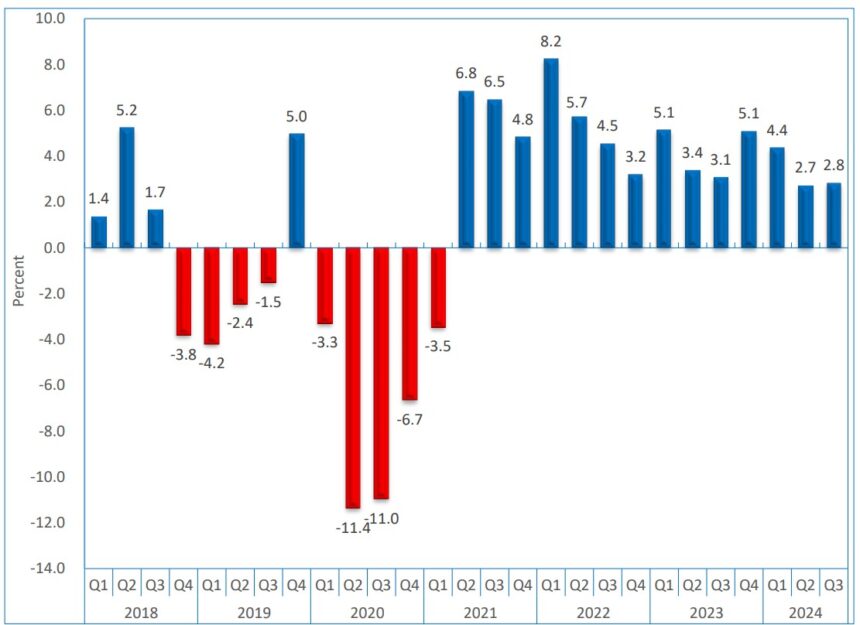The domestic economy continues to record growth since the second quarter of 2021, and during the third quarter of this year, the size of the domestic economy stood at N$61.6 billion in nominal terms, reflecting an expansion of N$5.3 billion from N$56.3 billion recorded in the same period of 2023.
This is according to the latest quarterly gross domestic product (GDP) figures released yesterday by the Namibia Statistics Agency (NSA). The quarterly GDP (QGDP) measures short-term economic activities.
In its report the NSA noted that in real terms, the domestic economy grew by 2.8% during the third quarter of 2024 compared to 3.1% growth registered in the parallel quarter of 2023. The growth was primarily driven by the tertiary industries, which saw a 4.9% increase in real value added during the third quarter of 2024.
This, the NSA pointed out, is an improvement when compared to a 1.9% growth recorded in the same period of 2023. The analysis shows that key performing sectors during the review period were health (16.0%), transport and storage (7.9%), and financial service activities (7.1%). However, secondary industries experienced slower growth of 1.5% in real value added, compared to a 4.4% increase in the third quarter of 2023.
This was mainly due to the manufacturing and construction sectors, which grew by 2.6% and 1.6%, compared to declines of 9.4% and 7.35 noted in 2023, respectively.
On the other hand, primary industries recorded a decline of 4.4% in real value added, contrasting with 13.8% growth recorded in the same quarter of 2023. This downturn was driven by the mining and quarrying and agriculture and forestry sectors, which posted declines of 6.7% and 6.3%, respectively.
“The poor performance is owed to reduced livestock marketed emanating from lower stock and drought impact, along with a decrease in diamond production,” the NSA stated.
Meanwhile, on the demand side, Private Final Consumption expenditure in real terms grew by 0.5%, a slower pace when compared to the 1.0% increase recorded in the same period of 2023. However, Government Final Consumption expenditure rose by 5.7%, surpassing the 0.7% decline witnessed in 2023. This is mainly due to higher public sector compensation.
Furthermore, Gross Fixed Capital Formation declined by 7.2%, in contrast to the huge growth of 92.8% observed in the same quarter of 2023. Export of goods and services expanded by 19.3%, more than the 7.3% increase recorded in the import of goods and services, leading to a reduction in the external balance of goods and services deficit.


